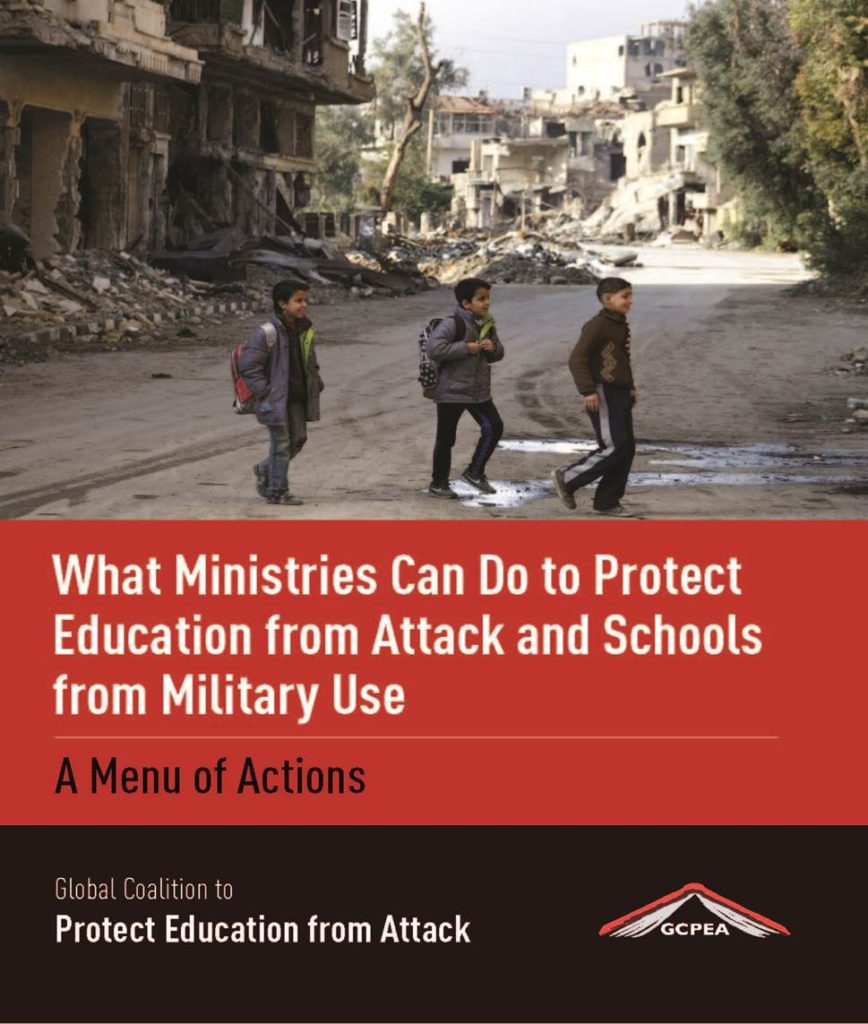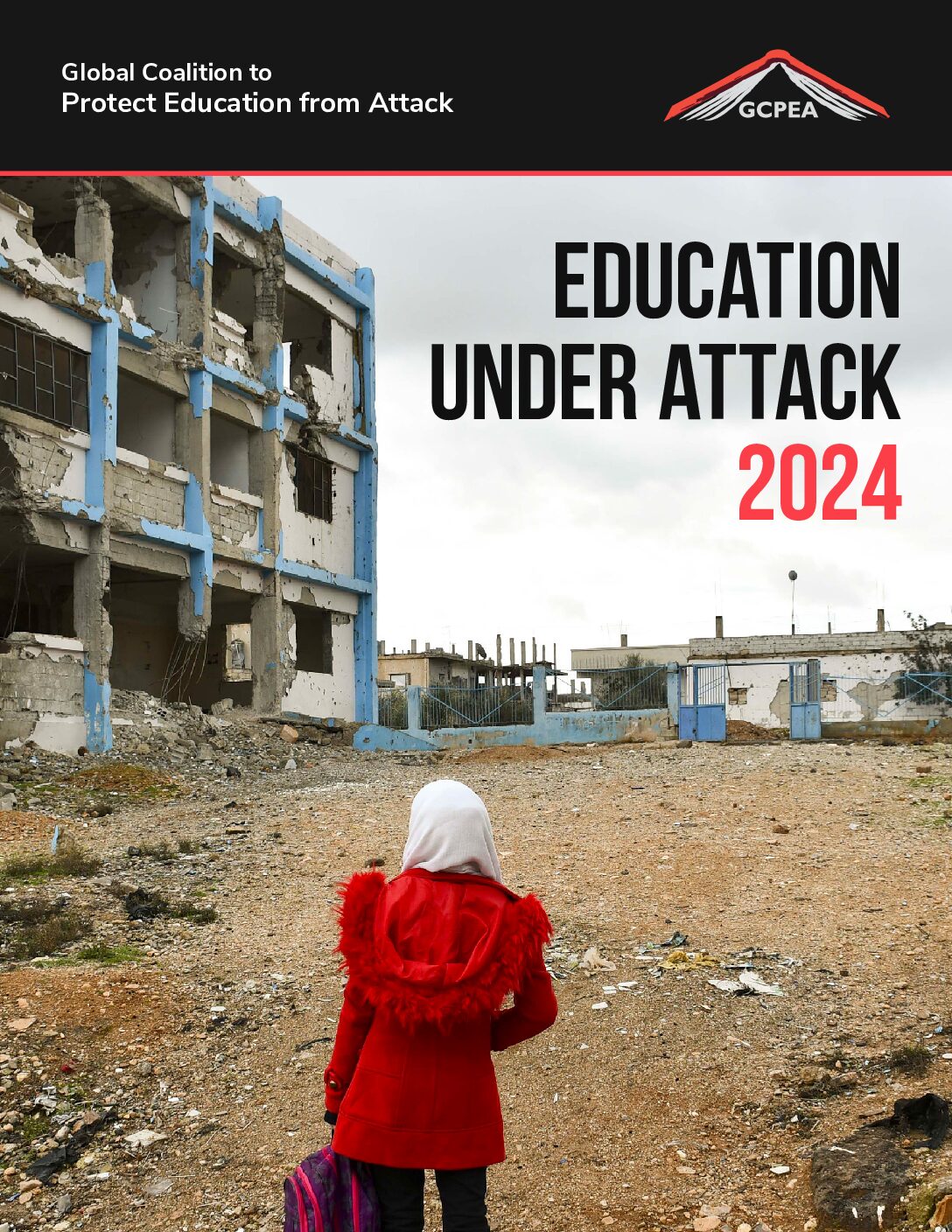GCPEA News
Guidance on Protecting Education Released on Anniversary of Deadly School Attack
GCPEA PRESS RELEASE, December 15, 2015
(New York, December 15, 2015) – Ahead of the one-year anniversary of the Pakistani Taliban’s attack on Army Public School in northwestern Pakistan that left at least 145 people dead, including 132 children, the Global Coalition to Protect Education from Attack (GCPEA) released the report, “What Ministries Can Do to Protect Education from Attack and Schools from Military Use: A Menu of Actions.” The 54 page report details concrete measures that government ministries responsible for education can take to keep schools and universities safe, even in situations of conflict and insecurity.
“Attacking schools, students, and teachers is a nefarious and frequent tactic of many warring parties,” said Diya Nijhowne, director of GCPEA. “Governments should do more to prevent these attacks, mitigate damage, and respond effectively so that safe education can resume quickly.”
The report calls on ministries to take seven key actions to protect education: analyze the situation and monitor attacks; secure schools; ensure education continuity; support communities in protecting education; be conflict sensitive; systematize education protection in ministries’ administrative and operational processes; and advocate with other government bodies to support protective measures, including state endorsement of the Safe Schools Declaration and implementation of the Guidelines for Protecting Schools and Universities from Military Use during Armed Conflict.
In its report Education under Attack 2014, GCPEA found a pattern of attacks occurring in 30 countries around the world between 2009 and 2013, showing that it is truly a global problem. In Pakistan there were at least 838 schools attacked, depriving thousands of children access to education.
December 16 also marks the first anniversary of the release of the finalized Guidelines for Protecting Schools and Universities from Military Use during Armed Conflict by the Permanent Missions of Norway and Argentina to the United Nations in Geneva. The Guidelines provide pragmatic guidance to armed parties on how to restrict use of schools for military purposes, and avoid making schools targets for opposing forces. To date, 51 states have joined the Safe Schools Declaration since it was opened for endorsement in May at a conference in Oslo. The Declaration enumerates commitments to protect education from attack, including by endorsing and using the Guidelines.
“Governments, working in collaboration with communities, should develop comprehensive, coherent systems for protecting education,” said Nijhowne. “Programs and policies to protect need to be designed and implemented in advance – it is too late to plan ahead once an attack on education has already taken place.”
The report was released at the Permanent Mission of Norway to the United Nations in New York on a panel on Promising Practices in Protecting Education, led by Ambassador Geir O. Pedersen, with representatives from UNICEF, the Aga Khan Foundation Pakistan, as well as GCPEA.
“The anniversary of the horrific Peshawar school attack is a reminder of the responsibility of governments everywhere to protect their children and youth and secure their right to learn and reach their full potential,” said Nijhowne. “GCPEA’s new report highlights the tools – now it’s up to states to use them, including by endorsing and implementing the Safe Schools Declaration.”




